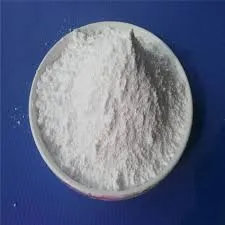The Importance of Active Pharmaceutical Ingredient Production
Active Pharmaceutical Ingredients (APIs) are the cornerstone of the pharmaceutical industry. They represent the active substances in medications responsible for the intended therapeutic effects. The production of APIs is a complex and critical process that entails a deep understanding of chemistry, biology, and engineering, as well as strict adherence to regulatory standards. This article delves into the significance of API production, its challenges, and its future directions in a rapidly evolving healthcare landscape.
The Role of APIs in Pharmaceuticals
APIs are the essential components that define the efficacy and safety of drugs. Every medication, whether it is a simple analgesic or a complex biologic, contains an API that interacts with biological systems to produce the desired therapeutic outcome. For instance, the API in an antibiotic functions to inhibit bacterial growth, while a pain relief medication’s API targets pain receptors in the nervous system. Given the pivotal role that APIs play, the quality and purity of these ingredients are of utmost importance.
API Production Process
The production of APIs involves several stages, including synthesis, purification, and formulation. The synthesis stage is where the raw materials undergo chemical reactions to produce the desired compound. This process can be highly intricate and may require multiple steps to achieve the final product. Once synthesized, the API must undergo purification processes to remove any contaminants and by-products, ensuring it meets the stringent quality standards set by regulatory bodies such as the FDA (Food and Drug Administration) or EMA (European Medicines Agency).
Formulation is the next step, where the API is combined with excipients to create the finished pharmaceutical product. This stage is crucial in ensuring that the API is delivered effectively, maintaining its stability and bioavailability.
Challenges in API Production
Despite advancements in technology and methodology, API production presents numerous challenges. One significant issue is the regulatory landscape. The pharmaceutical industry is highly regulated, and companies must comply with stringent guidelines to ensure the safety and efficacy of their products. This can involve extensive documentation, audits, and inspections, which can be time-consuming and costly.
active pharmaceutical ingredient production

Another challenge is the globalization of the supply chain. Many companies source raw materials and APIs from various countries to reduce costs. However, this can lead to inconsistencies in quality and pose risks related to supply chain disruptions. For instance, geopolitical tensions, natural disasters, or pandemic-related factors can all impact the availability of key ingredients, leading to delays in production and ultimately affecting patient access to medications.
Moreover, the increasing demand for APIs, particularly in developing countries, puts additional pressure on manufacturers to scale up production without compromising quality. Balancing the need for efficiency with safety and compliance continues to be a critical concern for industry stakeholders.
Future Directions
The future of API production is likely to be shaped by several transformative trends. One such trend is the incorporation of advanced technologies, such as artificial intelligence and machine learning, into the production process. These technologies can optimize synthesis routes, improve process control, and enhance quality assurance mechanisms, thereby streamlining production and reducing costs.
Sustainability is another crucial consideration for the future of API production. There is a growing recognition of the environmental impact of pharmaceutical manufacturing, prompting companies to adopt greener practices. This includes reducing waste, utilizing renewable resources, and developing eco-friendly manufacturing processes.
Furthermore, the COVID-19 pandemic highlighted the need for localizing API production. Many countries are now considering policies to bolster domestic production capabilities to mitigate reliance on foreign suppliers, thus fostering greater supply chain resilience.
Conclusion
Active Pharmaceutical Ingredient production is a vital and complex component of the pharmaceutical industry. As the demand for innovative therapies continues to grow, the challenges surrounding API production will necessitate novel solutions and a keen focus on quality and sustainability. By embracing technological advancements and addressing regulatory and supply chain challenges, the industry can ensure the availability of safe and effective medications for patients worldwide. The journey of API production is not only about creating drugs but also about safeguarding public health and improving global healthcare outcomes.

